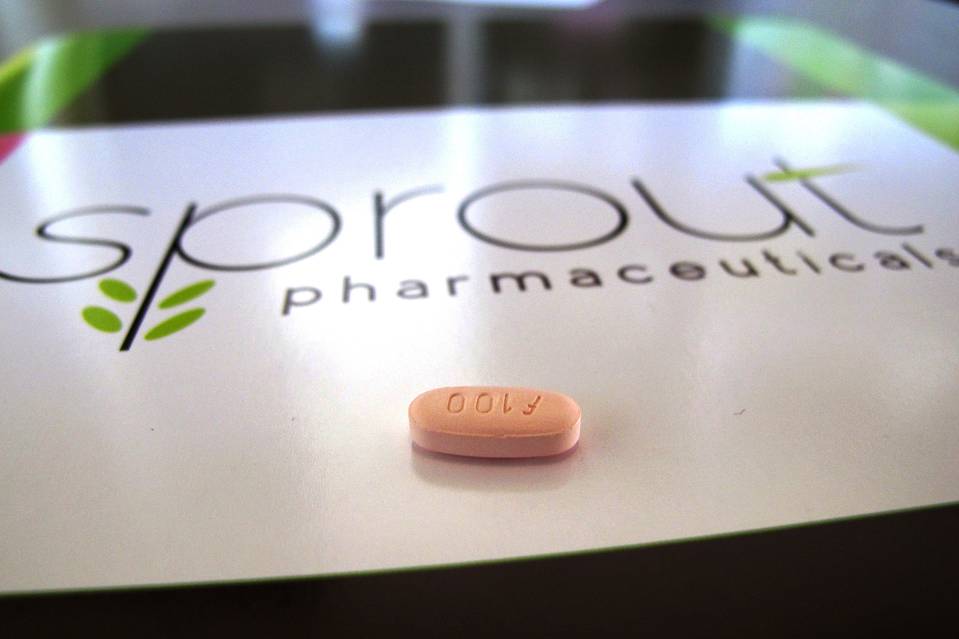6/5/2015

An FDA advisory committee voted 18-6 on Thursday, April 4th to recommend the approval of the drug, flibanserin, a medicine designed to increase the sexual desire in women. Known colloquially as “female Viagra,” two prior attempts at moving the drug through the Food and Drug Administration (FDA) process had been rejected. Drug developer Boehringer Ingelheim originally submitted flibanserin to the committee in 2010, only to be rejected with the panel saying that the drug had too many side effects and is was not effective in turning women on. The panel encouraged Boehringer to “go back to the drawing board” and find more conclusive data. The company re-submitted it in 2013, only to have the drug rejected without a review. Last year, however, Sprout Pharmaceuticals, the maker of flibanserin appealed to the FDA, and received guidance on the correct path to resubmit the proposal. Sprout cited a 2013 Journal of Sexual Medicine study that showed that women who use the drug averaged 2.5 “satisfying sexual experiences” over a four-week period, whereas placebo takers averaged 1.5.
Even given the nicknamed comparison to Viagra, approved by the FDA in 1998, flibanserin works more like an anti-depressant than a physical stimulant, affecting the brain as opposed to the body. A 2002 study estimated that one-third of all premenopausal women have “hypoactive sexual desire disorder,” however as Judy Kuriansky, clinical psychologist and sex therapist notes, “Women’s sexuality is very complicated. It’s not a matter of just taking that pill by the way, and then all of a sudden the lights go on. You have to feel good about your body. You have to feel good about yourself. You have to feel the guy really loves you. It’s complex. It’s not the same as a man taking a pill.” The efforts to introduce a product like Viagra, which gained manufacturer Pfizer $1.6 billion in revenue last year, on the market for women has become as much a cause for gender equality as for sexual health. The committee’s approval comes after an intensive lobbying campaign called “Even the Score,” of which Sprout has been a major participant. The campaign has argued that there is a large gender disparity among the drugs that the FDA has approved, although agency spokesperson, Andrea Fisher has responded that “The FDA strives to protect and advance all important areas of women’s health.” Susan Scanlan, campaign director said, “Today we write a new chapter in the fight for equity in sexual health.”
Although the FDA generally approves drugs that have been recommended by the advisory committee, final approval for flibanserin may be more complicated than the process for most drugs. Most notably are the potential side effects, which include fainting, nausea, dizziness, sleepiness and low-blood pressure, as well as the committee officially calling the drug’s benefits to be “moderate” or “marginal.” Despite receiving the passing grade, even some who approved the recommendation noted did so with a disclaimer. Georgetown University’s Dr. Adriane Fugh-Berman told the committee, “To approve this drug will set the worst kind of precedent — that companies that spend enough money can force the F.D.A. to approve useless or dangerous drugs.” Committee member and Rutgers University drug safety expert Tobias Gerhard said, “The unmet need seems to be so strong that even for a drug with rather modest benefit; I think approving the product with strong limitations seems to be the right step at this point.” These limitations include potentially requiring doctors to undergo a certification process as well as sharing specific information with patients before prescribing the drug. The consumer representative of the committee, Michael Orza , voted against the drug, saying that women with low sexual desire, “deserve better.” The FDA has an August 18th deadline to approve the committee’s recommendation.
Sources:
CNN – Debra Goldschmidt and Catherine E. Schoichet
New York Times – Andrew Pollack
Washington Post – Brigid Schulte


Join the conversation!